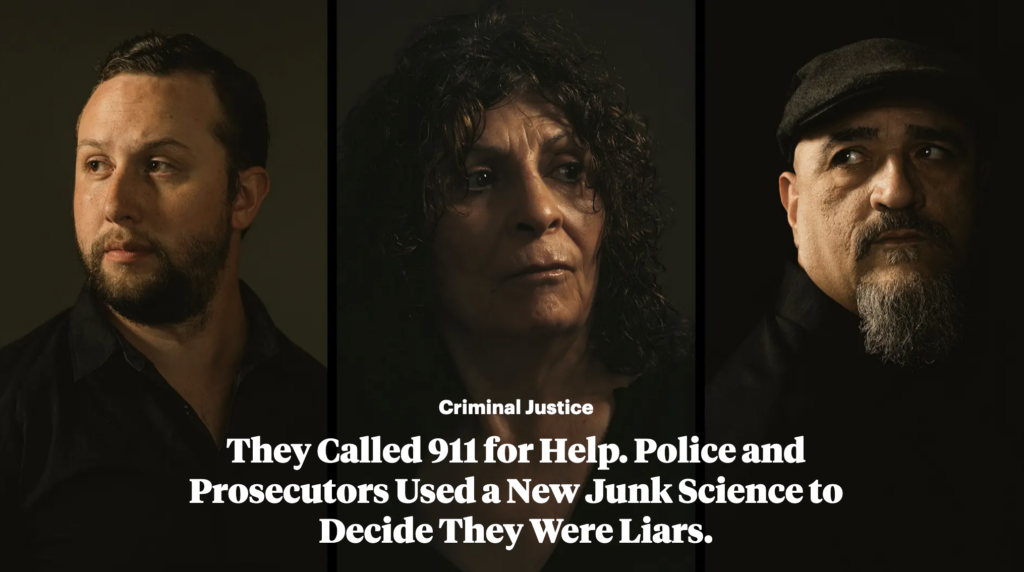
I first stumbled on 911 call analysis while reporting on a police department in northern Louisiana. At the time, it didn’t sound plausible even as a one-off gambit, let alone something pervasive that law enforcement nationwide had embraced as legitimate.
Brett Murphy (ProPublica)
Balancing Intrusion and Respect
ProPublica’s Brett Murphy explored the harm of junk science in criminal justice in his two-part series “Words of Conviction.”
Murphy tells the story of Jessica Logan, a woman who called 911 for help, but whose words later became fodder for her conviction. Murphy found that a new method of police training called 911 Call Analysis, which purports to shed light on a caller’s guilt or innocence based on close examination of their 911 call, was leading to convictions despite being based on junk science.
In his report, Murphy shows how many lives the 911 Call Analysis is harming, as well as how fragile the legal system’s protections are when such methods are used. But in this reporting, Murphy had to balance telling the story fully but respectfully. He had to ask sources to revisit painful convictions, decide whether to include traumatic audio of 911 calls, and decide who or what to hold accountable for the program’s harm.
Brett Murphy on His Reporting
Questions
Q1: Murphy’s story includes audio of the 911 calls of several sources (and victims of the junk science he investigates). Would you use this audio in your reporting? What role does it play in advancing the story?
Q2: Murphy had to balance intrusion and respect in working with families affected by this program. Did he get the balance right? Would you have done anything differently?
Q3: Rather than doing a “takedown” of the training program’s founder, Murphy focused more on the system that enabled the 911 Call Analysis program to flourish. What ethical reasoning would you apply in framing the story the way Murphy did?
